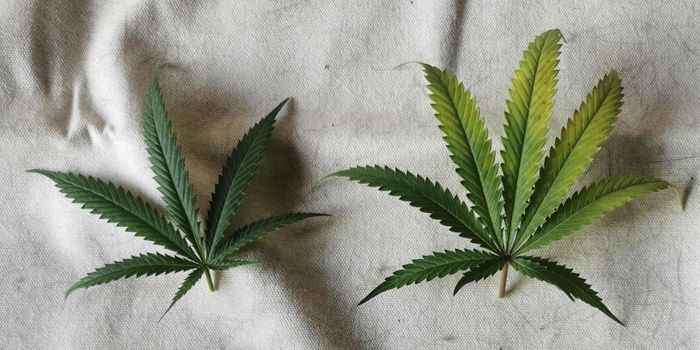Can Cannabis Help Regulate Your Sleep Cycle?
According to the Sleep Association, around 50-70 million adults in the US have a sleep disorder. Some claim that cannabis may be able to help improve sleep quality by restoring the natural sleep cycle, but is this really the case?
Some research suggests that cannabidiol (CBD), a non-psychoactive compound of cannabis, may improve sleep. One study, for example, found that a CBD dosage of 160 mg increased sleep duration. This may be as CBD has also been shown to decrease cortisol levels, which is associated with fewer nighttime awakenings.
However, a more recent analysis of CBD on 103 participants taking various prescribed medications who had anxiety or poor sleep found that CBD had a mixed effect. While 66.7% of people at the first follow up reported improved sleep, 25% reported worsened sleep.
At the second follow-up, 56.1% of participants reported improved sleep, whereas 26.8% reported worse sleep. This, says the researchers, means that while CBD may have short term benefits, these benefits may not be long-lasting.
They did find however that among those who reported benefits from CBD, the lowest dosage studied (25 mg) was most effective for reducing anxiety whereas higher doses (up to 175 mg) tended to work better for troubled sleep.
Tetrahydrocannabinol (THC), a psychoactive compound in cannabis, may also have some effect on sleep. A study from 2008 for example, found that consuming strains of cannabis with higher levels of THC reduces REM sleep, and thus the incidence of dreams. This may be beneficial for those who have PTSD, as it may reduce nightmares.
Less time in REM sleep theoretically entails more time spent in deeper stages of sleep which are thought to be more restorative and restful. However, it should also be noted that REM sleep is important for healthy cognitive and immune functioning. Thus, long term use of THC for sleep purposes may have some negative side effects.
What about synthetic cannabinoids? Research has found that synthetic cannabinoids, such as nabilone (a synthetic analogue of THC) and dronabinol (an enantiomer of THC) may be able to relieve sleep apnea when used short-term due to their effects on serotonin-mediated apneas. Nabilone may also be able to improve sleep quality among those with chronic pain.
Cannabinoid concentration, timing and route of administration may also affect how effective cannabis may be in improving sleep quality. Dr. Jordan Tishler, a Harvard-trained physician and cannabis therapeutics specialist, said to Healthline that strains of cannabis that contain more than 20% THC may make people feel groggy the next morning.
For those who dislike smoking cannabis, vaping devices or THC-rich tinctures which are dropped under the tongue can be used around an hour before sleep. Taken in these ways, the effects of the plant may last for three to four hours, just enough to fall asleep. Tishler added that starting to feel the effects slightly before bedtime reduces the risk of excitability which in itself could prevent sleep.
Edibles, however, says Tishler, can be unpredictable, sometimes kicking in hours after ingestion. As such, he rarely recommends them as sleep aids. This also comes as their effects can last for longer, resulting in feelings of grogginess the next morning.
How often a person uses cannabis may also affect sleep quality. One study examining 98 young adults, for example, found that daily users of cannabis had higher rates of insomnia and sleep disturbances than non-daily users and non-users.
Due to peoples’ different underlying physiologies, different strains of cannabis, routes of administration and cannabinoids affect different people in various ways. Some people may be best to avoid cannabis altogether. This is especially true for those who report that high-THC strains make them feel anxious or paranoid, and for those with poor cardiovascular health who should avoid cannabis due to the increased risk of myocardial infarction.
All in all, it is difficult to say whether cannabis has a definitive effect on sleep quality. Although it seems to help some people to improve their sleep, it is difficult to predict exactly who it will and won't help. While some should avoid cannabis due to underlying health conditions, others may find it useful to consult their physician before using the plant, or any of its derivatives, to improve sleep quality.
Sources: Healthline, Medical News Today, Journal of Addictive Diseases, Topical Collection on Sleep Disorders, Pub Med










